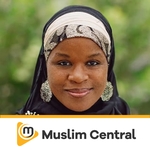Ieasha Prime – The Quran in Chains Islam and the Black American

AI: Summary ©
The transcript discusses the history of the Bible and the coming uproar over the African Americans. It describes the names of various Muslims who followed the Bible and their actions during the American revolution. The transcript also mentions a man named Clarus Makandal who was a great religious student and teacher, and how he taught the Quran and eventually led to the Maroon movement.
AI: Summary ©
The next section that we cover as it relates to African Americans
and Islam
is a darker, more painful history. It's called the Quran in chains.
You
Yes, what we find is that there are a multitude of those who had
strong Islamic knowledge, even who were who followed of Quran, who
arrived at the shores of America, but not as a Voyager, not as
someone who's seeking an adventure, but actually in chains,
someone who's forced on the shores of America through the horrific
act of the transatlantic slave trade. When they arrive, many of
them, there are documented accounts that says well over 30,
even some into 60% said that many of them were Muslim. And in those
Muslims, you will find the likes of Omar ibn Said, Abdul Rahman Ibn
Soro, who is also known as the prince among slaves. You will find
Yaro Mahmoud and multiple, multiple other accounts, accounts
that you can also find in the book by Sylvian Jof and the servants of
Allah. You will find their stories, for example, with Omar
ibn Saeed, where he was not only someone who was a practicing
Muslim, but someone who was also well versed in several West
African languages, well versed in English and well versed in Arabic.
As a matter of fact, when those who owned him asked him to write
the Lord's Prayer, it's known that he actually wrote Suratul Nasr and
in other parts of his writings, you will also find where he wrote
poetry praising the Prophet Anahi salatu wassalam till the end of
his life, it was known that Abdul Rahman Ibn Soro, who was known as
the prince of monk slaves, was also someone who not only was
quickly recognized for his level of intelligence, his command of
multiple languages, but also because he had been a military
leader in his own country, that he also was known for being a leader
on the plantation. And so when his when the slave masters of that
plantation, began to recognize his intelligence. Of course, he became
very valuable to them, and so, of course, they would use him for
their own benefit, for their own gain. But eventually, when they
read, he tried to write a letter back home to his family, and he
asked someone to deliver it for him. When they realized that this
letter was in Arabic, they immediately thought that he was
from amongst the Moors. Eventually, they petitioned the
Moroccan government on his behalf, and he was eventually returned
back to West Africa. Yarrow Mahmoud lived in Georgetown right
now. What is we live here in Washington, DC. He was actually
known to be have a bank account and to actually be a stakeholder
in one of the banks here in DC, there are many, many accounts of
those who came in, who came in chains to the shores of America as
Muslims, and who began to spread Islam. But not only did they
spread Islam, they also spread the spirit of freedom. And with the
spirit of freedom comes the fire of rebellion against oppression.
And that's exactly what happened in the next story. We have a story
by the man of the name Imam makandal. And Imam makandal was
actually not only was he a great religious student, but he was also
a great religious teacher, and many of his students began to
disappear, having been kidnapped and sold into America. So he
eventually Imam makan Dao had himself sold into slavery in order
to find out what had happened to his brothers and sisters? Where
had those walking Qurans disappeared to and so he ended up
in Haiti. But while he was in Haiti, he began, of course, to do
what, to teach Islam. He began to, just as he had done on the shores
of West Africa, he began to teach the Quran, he began to teach
Hadith, but also he began to teach them that they were not the slaves
of any man, but in fact, that they were the servants of Allah taala,
and as a result, they had the birthright to be free this Imam
maqandal would be the one who would be the teacher.
Of Imam bukman, who would become the leaders of the maroon movement
in Haiti, and also the teacher of Toussaint lo overture, who would
eventually lead to the Haitian Revolution. This spread across not
only the Caribbean, but it began to spread into South America. It
began to spread into the Americas that more and more Muslims were
becoming known for that spirit of freedom, and therefore their
resistance against oppression. In 1760 they decided to pass a bill
that they would make it illegal for slaves to act, for slaves
imported into America to be of the Muslim faith. Why they were not
easy to encapture and they would not remain in slavery in peace.
You